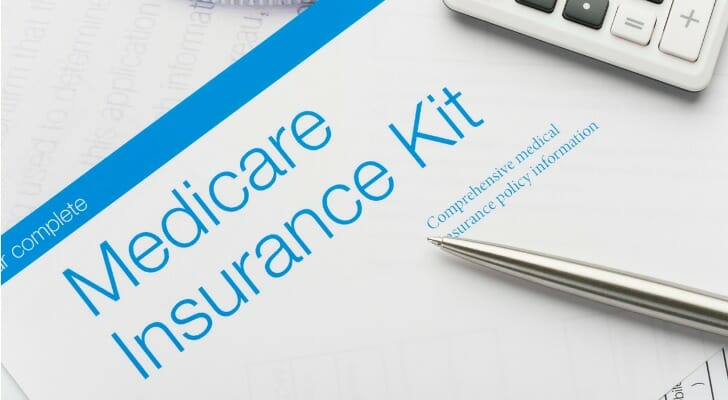As the number of coronavirus cases in the U.S. grows, you might be wondering whether your health insurance will cover you if you were to contract the disease, COVID-19. While every health plan differs, here’s what you need to know about your policy and what coverage you can expect.
COVID-19 Coverage and Cost Concerns
Making sure there is access to coverage for coronavirus-related testing and COVID-19 treatment poses a a challenge since America’s health coverage system is fragmented. Most Americans are insured through their employer, while others receive Medicare, Medicaid, CHIP, coverage through the individual marketplace or the military. Unfortunately, more than 20 million Americans are uninsured.
Many private insurers have announced voluntary coverage policies. Also, state officials have clarified requirements for coverage by state-regulated policies. Most of these announcements only relate to the testing for the virus. However, most plans should cover some if not all treatments of COVID-19 such as hospitalization and lab services.
But, while most treatments may be covered by your insurer, costs will differ according to your plan. One study estimates that treatment costs, depending on complications, could range between $10,000 and $20,000. These estimates are based on hospital admissions for pneumonia. It’s important to note that treatment cost coverage may differ by policy. Some policies don’t have comprehensive coverage. An example of this is a short-term health plan.
Private Health Plans
Many private healthcare plans are covering FDA-approved testing for the coronavirus. And the Families First Coronavirus Response Act ensures that testing will be free. Additionally, plans are covering any services or items included in a medical visit that results in a coronavirus test. All these services can be conducted in person, via telehealth or at a care center or emergency room. For example, Anthem will cover the cost of coronavirus testing with no out-of-pocket cost to the policyholder. It also confirmed that no prior authorization will be required.
Regarding treatment, the coronavirus might be covered like every other illness. This may mean that as a policyholder, you’re responsible for your deductible. If you’re hospitalized or receive other medical care for the disease, you’ll be covered according to the rules and guidelines of your specific plan. Depending on your plan, you may still have to pay a copay, deductible or coinsurance. For example, if you have a 10% copayment after the deductible, you may have to pay 10% up to the plan’s annual limit.
Medicare

As a general rule, COVID-19 treatment is covered by Medicare.
Medicare Part B now covers lab tests for the virus. You will not have to pay any out-of-pocket expenses if your doctor states that you need a test, provided you were tested on or after Feb. 4. Medicare Part A will cover all medically necessary hospitalization expenses due to COVID-19. This can include those who were diagnosed with COVID-19 but may have been released from the hospital following an inpatient stay. If you now need to stay in the hospital under quarantine, your costs should be covered.
If a vaccine is created and becomes available to the public, the Medicare Prescription Drug Plan Part D will cover the expense. However, if you don’t have a Medicare Advantage Plan or the Medicare Prescription Drug Plan Part D, you may have to pay for the vaccine. If you have a Health Savings Account (HSA), you could use those funds to pay for the cost.
It’s important to note that if you have a Medicare Advantage Plan, you have access to the same benefits. But you must verify your coverage and costs during this time.
Additionally, like private health insurance providers, Medicare is expanding its telehealth services to making interacting with healthcare providers easier.
Military TRICARE Insurance
Testing for the virus is free. If you receive treatment for COVID-19 and have TRICARE, you will be responsible for making any applicable copayments. This includes doctors’ visits both in and out of network. If you are retired or have supplementary insurance, you will still be covered by TRICARE and will pay any deductibles or copays as usual.
Uninsured
Because of the pandemic, healthcare professionals are urging the uninsured to seek testing and treatment if they think they may have COVID-19. Hospitals are being instructed to treat everyone. So, if you don’t currently have health insurance, here are some steps you should take.
Seek Help
It can be difficult to know where to turn if you are uninsured and think you may have the novel coronavirus. If you have a primary care physician, you should call them first. You can discuss your symptoms and decide if you should be tested.
If you do not have a primary care provider, you should not go directly to a clinic or emergency facility. However, if you have difficulty breathing or have been advised to visit a facility, then you should go. The Center for Disease Control (CDC) has a self-check website to help you determine if you should be tested.
Get Free Testing
If you believe you should be tested, then try calling your state or local health department. They will be able to help you find the closest place to get tested. Many local agencies have hotlines specifically for COVID-19. There are also community health clinics that help low-income and uninsured individuals address their symptoms but most do not have testing available.
Get Health Insurance
Medicaid is expanding eligibility in some states to help temporarily insure more people. Washington, D.C., and 11 states have opened enrollment to allow individuals to apply for Medicaid. Several insurance companies have also been asking Congress to open enrollment as well.
If you plan to sign up for insurance, do it before you need it. You should choose a high-quality plan that includes all incidental costs associated with COVID-19. Some states require insurance plans to cover essential benefits like COVID-19 treatment. Be sure that the plan you choose will support you. Remember that lower-cost plans typically have higher deductibles.
The Bottom Line

As the pandemic evolves, so will healthcare coverage. If you do have a healthcare policy, make sure to consult your healthcare provider and understand what costs you’re responsible for. This way you have time to prepare financially if you do contract the disease. If you’re uninsured, now might be the time to find an affordable healthcare policy. With Medicaid finding ways to expand eligibility, it may be easier to find some sort of policy to fit your needs.
Tips for Understanding Health Insurance
- A financial advisor can build a financial plan that accounts for medical expenses and other costs. Finding the right financial advisor who fits your needs doesn’t have to be hard. SmartAsset’s free tool matches you with financial advisors in your area in five minutes. If you’re ready to be matched with local advisors who will help you achieve your financial goals, get started now.
- Sorting through your health insurance options can be confusing in part because some of the terms may be unfamiliar. Here are definitions of 10 common terms in health insurance.
Photo credit: ©iStock.com/marrio31, ©iStock.com/courtneyk, ©iStock.com/gguy44
